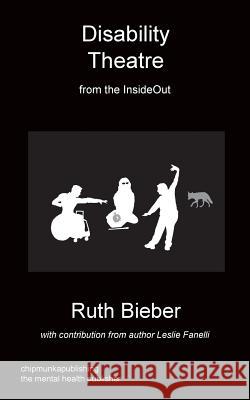Disability Theatre from the Insideout » książka
Disability Theatre from the Insideout
ISBN-13: 9781849919470 / Angielski / Miękka / 2013 / 290 str.
For several decades, the University of Calgary, Canada, housed an otherwise community-based service for people with dual diagnoses: developmental delay, plus a behavioural disorder. The mandate of "The Behaviour Support Team" was to support clients who were transitioning from institutions into community living. The Team was for many years considered the agency of last resort. Virtually all people who were receiving service were diagnosed with a mental health disorder, along with a second disabling condition; for example, visual impairment, brain injury, genetic skin disorders, deafness (not always considered a disability) and many others, coupled with an intellectual challenge.As practitioners, we were expected to offer support groups along with individual counselling as well as outreach support. Drama groups were a hit, and this book tells the evolutionary story of the ultimate development of a theatre company, mandated to tell the stories, and to provide the thrilling opportunity for its "actors" to experience the spotlight!This book, complete with scripts, takes a political stance, which is not always easy for some readers to accept. Herein lays some of its appeal as the narrative, at times, challenges the rehabilitation and theatre communities. This fact, coupled with the reality that the artistic director has a disability of her own, makes for an interesting, if not edgy, yet educational read. The book provides theoretic considerations, which are often contradictory, but virtually always controversial where mental health is concerned. Theoretic considerations are contrasted and compared to feminism, shamanism (depicted by turtle on the book cover; more specifically trickster, depicted by coyote), and trends in rehabilitation within a Canadian context. The final draft of the book goes on to include some American context provided by my theatre colleague Leslie Fanelli, who began similar work within the disability theatre movement on the other side of the continent, decades before we had the pleasure of meeting. The reader will also find practical application and instruction for the development of three levels of theatre experience for acting enthusiasts. In essence the stories gleaned from the chapters and accompanying scripts, speak of our inherent right to creative expression, one which is often denied those who are differently able.











